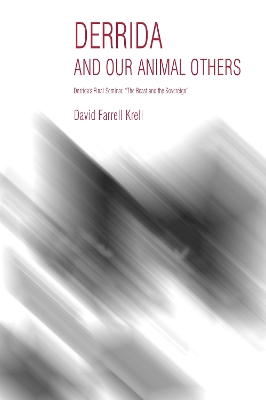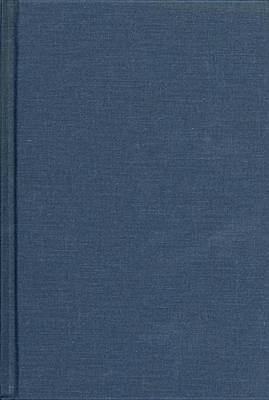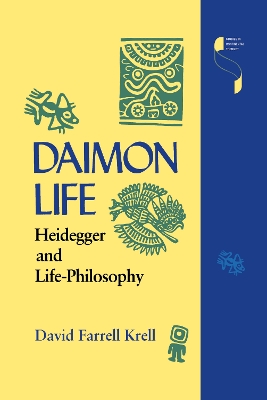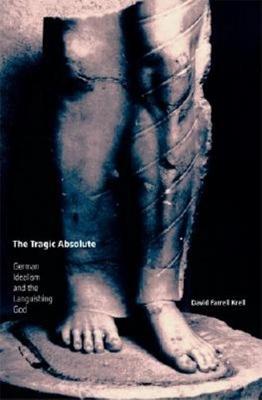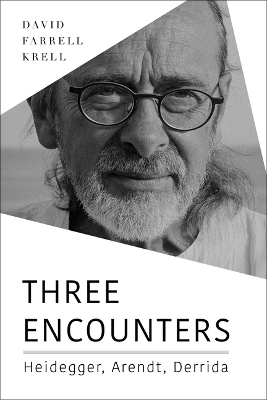Studies in Continental Thought
8 total works
"Krell writes here with a brilliance of style that few other philosophers can match." -John Sallis
Although the Romantic Age is usually thought of as idealizing nature as the source of birth, life, and creativity, David Farrell Krell focuses on the preoccupation of three key German Romantic thinkers-Novalis, Schelling, and Hegel-with nature's destructive powers-contagion, disease, and death.
Jacques Derrida's final seminars were devoted to animal life and political sovereignty-the connection being that animals slavishly adhere to the law while kings and gods tower above it and that this relationship reveals much about humanity in the West. David Farrell Krell offers a detailed account of these seminars, placing them in the context of Derrida's late work and his critique of Heidegger. Krell focuses his discussion on questions such as death, language, and animality. He concludes that Heidegger and Derrida share a commitment to finding new ways of speaking and thinking about human and animal life.
Derrida and Our Animal Others: Derrida S Final Seminar, the Beast and the Sovereign
by David Farrell Krell
"Infectious Nietzsche is simply one of the most interesting and engaging works to appear on Nietzsche's philosophy in years."
-David Allison
Krell explores health, illness, and creativity in the life and thought of Friedrich Nietzsche. Drawing on a varied literature of philosophical reflections on health, and analyzing Nietzsche's confrontation with traditional values, Krell skillfully engages the legacy of Platonism and Western metaphysics that is at the core of Nietzsche's thought. Nietzsche's genealogical critique, his doctrine of eternal recurrence of the same, and the Nietzschean physiology and psychology of decadence are principal foci. Anyone interested in a philosophical reflection on questions of genius and pathology, and all readers of Nietzsche, will find Krell's new book compelling reading.
"Daimon Life is life-enchancing. To read it is to become richer in wor(l)d." -John Llewelyn
Disclosure of Martin Heidegger's complicity with the National Socialist regime in 1933-34 has provoked virulent debate about the relationship between his politics and his philosophy. Did Heidegger's philosophy exhibit a kind of organicism readily transformed into ideological "blood and soil"? Or, rather, did his support of the Nazis betray a fundamental lack of loyalty to living things? David Farrell Krell traces Heidegger's political authoritarianism to his failure to develop a constructive "life-philosophy"-his phobic reactions to other forms of being. Krell details Heidegger's opposition to Lebensphilosophie as expressed in Being and Time, in an important but little-known lecture course on theoretical biology given in 1929-30 called "The Basic Concepts of Metaphysics," and in a recently published key text, Contributions to Philosophy, written in 1936-38. Although Heidegger's attempt to think through the problems of life, sexual reproduction, behavior, environment, and the ecosystem ultimately failed, Krell contends that his methods of thinking nonetheless pose important tasks for our own thought. Drawing on and away from Heidegger, Krell expands on the topics of life, death, sexuality, and spirit as these are treated by Freud, Nietzsche, Derrida, and Irigaray. Daimon Life addresses issues central to contemporary philosophies of politics, gender, ecology, and theoretical biology.
"Krell creates a remarkable interplay of meanings, allusions, and connotations--an interplay of multiple resonance which is finely tuned to Derrida's thought and which makes his essay as artful as it is conceptually disciplined. He is surely one of the most astute translators and readers in contemporary Continental thought." --Charles E. Scott
David Farrell Krell, Professor of Philosophy at DePaul University, is author of several books, including "Postponements" (IUP, 1986), "Of Memory, Reminiscence, Writing" (IUP, 1990), "Daimon Life" (IUP, 1992), "Infectious Nietzsche" (IUP, 1996), and "Contagion" (IUP, 1998).
In 1974, thirty-year-old philosopher and translator David Krell began corresponding and then meeting with Martin Heidegger and Hannah Arendt. Years later, he would meet Jacques Derrida and, through many letters and meetings, came to know him well. Drawing on unpublished correspondence and Krell's warmly told personal recollections, Three Encounters presents an intimate and highly insightful look at the lives and ideas of three noted philosophers as they neared the culmination of their careers.
Three Encounters offers a chance for readers to encounter these three great philosophers and their ideas, not through the lens of their biographies, but as "people" known through their personal correspondence and Krell's recollections, demonstrating the entanglement of thought and the lived experience.

